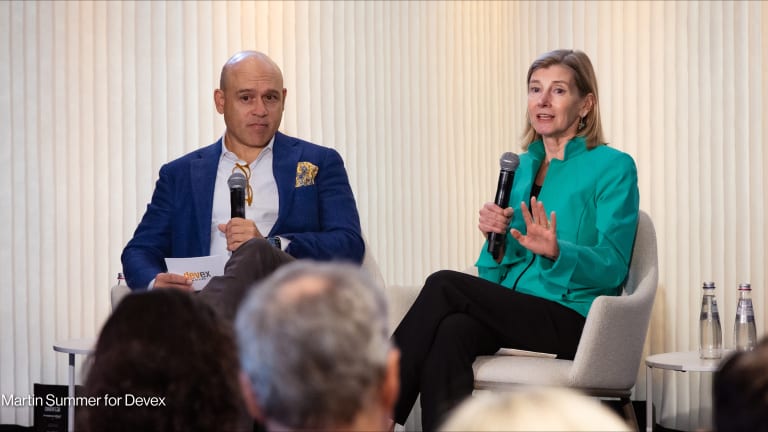AUSTIN, Texas — At the entrance to the “Social Good Hub” at South by Southwest (SXSW), a festival celebrating technology and innovation in addition to film and music, is a step and repeat banner featuring the Sustainable Development Goals.
Inside, a range of programs cover everything from storytelling for social impact to partnerships to collaboration in the current political climate. Yesterday, Devex reporter Catherine Cheney moderated a conversation with Gary White, CEO of Water.org, and Michele Sullivan, president of the Caterpillar Foundation and director of corporate social innovation at Caterpillar Inc.
In conversations on and offstage, Sullivan offered Devex insights about her organization’s partnership with Water.org and the challenges facing policy and advocacy work in Washington, D.C. Here are her comments, edited for length and clarity.








